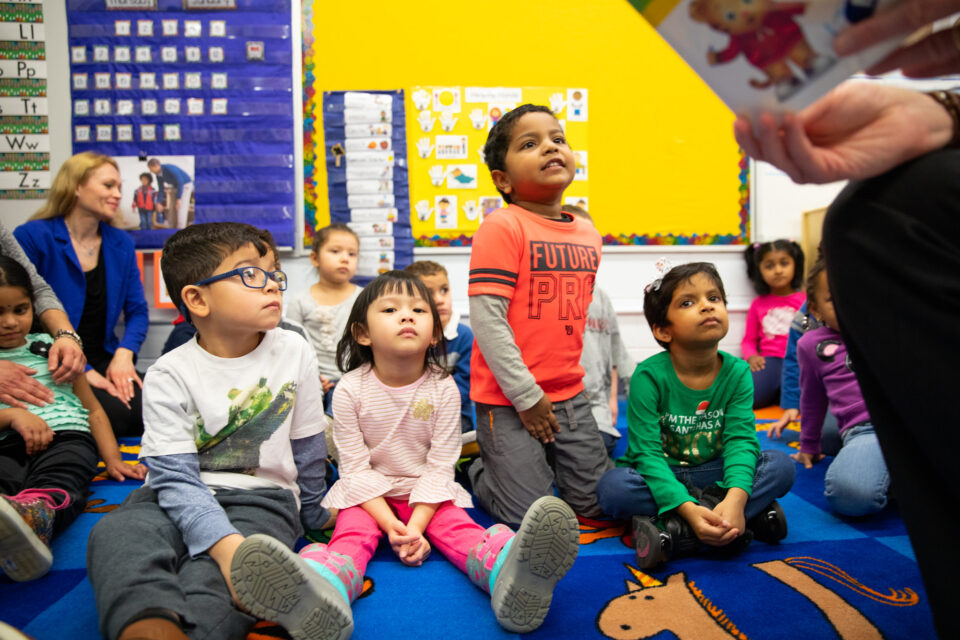
How Many NJ Parents Really Want to Ban Books?
February 14, 2024
Come to the Free Education Concert in Rahway!
February 15, 2024Dartmouth is bringing back the SAT’s. What Can New Jersey Learn?
Last week one of the top colleges in the nation, Dartmouth College, announced it was reversing its 2020 decision to make SAT or ACT scores optional when students fill out admissions applications. Why?
“The evidence supporting our reactivation of a required testing policy is clear,” the college said. “We believe a standardized testing requirement will improve—not detract from—our ability to bring the most promising and diverse students to our campus.”
How can standardized tests, long regarded by the “progressive” clique as tools of the oppressor, help disenfranchised students?
Here’s how: In a white paper, researchers found “the use of SAT and ACT scores is an essential method by which Admissions can identify applicants who will succeed at Dartmouth,” especially “high-achieving less-advantaged applicants” who had been choosing not to submit scores. Also, “researchers who have studied the issue say that test scores can be particularly helpful in identifying lower-income students and underrepresented minorities who will thrive.”
In other words, going SAT-optional is detrimental to low-income students, disproportionately of color. Without objective measures of math and reading proficiency, colleges are free to use subjective measures, like teacher evaluations (surely different in a tiny classroom where the teacher knows each student compared to urban schools with 30 kids in a class) and report card grades, which are wildly inflated. Maybe someone can explain to me how it is not racist/classist to compare one student who, with the help of a writing coach, submits an essay about being coxswain on her prep school’s crew team with another student who writes on her own, “I had a minimum wage job.”
The Murphy Administration’s Department of Education, which has put much energy into diluting our state assessments, could learn something from Dartmouth. While the national teacher union NEA claims, “since their inception a century ago, standardized tests have been instruments of racism and a biased system,” standardized testing is, in fact, a truth-teller. These tests are not racist; they reflect back the inequities of our school system, with too many Black and Brown students either consigned to long-failing school districts because we assign districts by ZIP code, or segregated within seemingly integrated school systems like Montclair and South Orange-Maplewood.
Standardized tests are a mirror. They don’t lie and they’re not racist. They give us a clear picture of how the state (and national) public school system fails our students. Ignorance is not bliss.
Indeed, Dartmouth found that not requiring standardized test scores nudged Black and Brown students to hold back results they thought were too low to help when, in fact, including the scores (which, in the admissions office, are weighted based on socio-economic levels) actually boosted students’ chances of admission. The results? Less diversity on campus. “Contrary to what some have perceived,” Dartmouth said in the announcement, “standardized testing allows us to admit a broader and more diverse range of students.”
We don’t have to go too far back to see how easy it is for subjective measures to become racist.
My parents were first-generation New York Jews from Eastern Europe. Back in the 1920’s (I’m not that old! My parents were attending college in the 1950’s) Ivy League schools—which historically were almost entirely Christian— worried that the increasing number of Jews on campus was endangering their gentile havens of academic excellence. Jerome Karabel, who wrote The Chosen: The Hidden History of Admission and Exclusion at Harvard, Yale, and Princeton, explains, “Columbia soon found that 40 percent of its entering class was Jewish. Harvard counted two or three Jews among every ten freshmen.”
It was a disaster that became known as “the Jewish problem.” (Colleges, even top ones, were much cheaper then, $300 per year, so current sky-high tuition wasn’t a factor.) Harvard president Lawrence Lowell wrote, “To prevent a dangerous increase in the proportion of Jews, I know at present only one way which is at the same time straightforward and effective, and that is a selection by a personal estimate of character.”
What could these colleges do to create a “personal estimate of character” in order to weed out what Lowell called “an alien and unwashed element”?
First, additional questions were included in applications: place of birth, mother’s maiden name, whether the last name had been changed (a common practice among East European Jews). Also, prospective students had to send in a photo or have an alumni interview. Applicants suspected of being Jewish were classified into three categories: J1 meaning definitely Jewish, J2 meaning probably Jewish, and J3 meaning possibly Jewish.
Second, these schools minimized objective measurements of student aptitude and increasingly relied on intangibles like “character” and “legacy” and “geographic diversity.” Bingo: a sharp decrease in the number of Jews on campus.
My parents went to Brooklyn College, which was then chock-full of socialist Jews who knew they’d be banned anywhere else. Bernie Sanders went there too! Columbia University even set up a separate Jewish campus in Brooklyn “to give bright youngsters of unacceptable social characteristics a Columbia education without too badly contaminating the elite of the College itself by their formal presence.“
Besides making for a fun bedtime story, what can we learn from this century-old American experiment in diluting objective measures of student progress? We learn that young people become victimized when we rely on subjective measures. We learn that objective evaluations can help the disenfranchised rise up. We learn, as Dartmouth did, that standardized tests help “identify lower-income students and underrepresented minorities who will thrive.”
Photo courtesy of Laura Waters.




